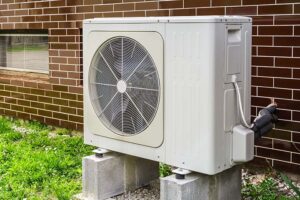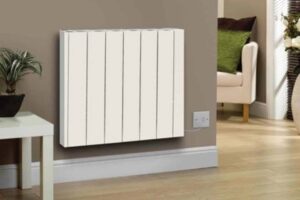Table of Contents
As the temperatures drop and winter approaches, many homeowners wonder how their heat pumps will perform in colder weather. Heat pumps are an efficient and eco-friendly heating solution that works by transferring heat from one place to another. But how exactly do they function in the winter months when heat is needed the most? Throughout this article, we will discuss the inner workings of heat pumps and explore how they adapt to provide warmth during the chilly winter season. By understanding the principles behind heat pump operation, you can ensure your home stays cosy and comfortable all year round.
How Does a Heat Pump Work In Winter?
Living more economically can be beneficial for the environment and your wallet. Due to its efficiency and effectiveness, more and more people are turning to heat pumps to improve their living conditions.
The government is also supporting the development of heat pump technology.
Even so, there are concerns about heat pump performance in the cold. After all, you rely heavily on your heating system during the winter months.
We’ll discuss how heat pumps work in the winter, what you can do to prevent them from freezing, and how to ensure they use energy efficiently, even in cold places.
How does a Heat Pump Work?
There are two main types of heat pumps: ground source heat pump and air source heat pump. For the purposes of this review, both will be thought of as air coolers because they work in very similar ways. In fact, air-to-air heat pump are actually aftermarket air conditioners with a cooling cycle to be used for heating rather than cooling.
The heat pump uses a heat exchanger that extracts heat energy from the air or ground (depending on the type of machine) and a compressor, which moves the refrigerant through the system and then transfers the hot refrigerant to another heat exchanger to heat it, and that back into our homes through radiators or underfloor heating.
The way a heat pump generates and transfers heat can make it more efficient and less expensive than electric heaters and boilers.
Air Source Heat Pumps
Air source heat pumps absorb heat energy from the air to increase the temperature inside a home either by blowing warm air into the room or heating water to use in radiators and underfloor heating, depending on the type of heat pump installed. The efficiency of air source pumps may vary depending on the season and the time of day.
Specifically, if it’s dry outside, an air source heat pump will make it easier to deliver hot energy to your home.
Efficiency of Heat Pumps in Winter
A common misconception is that heat pumps don’t work when it’s cold. Modern heat pumps are equipped with advanced technology that allows them to operate efficiently at temperatures well below freezing. However, their performance may decrease as temperatures drop, with additional features such as insulation jackets playing an important role.
For air source heat pumps, look for the Heating Seasonal Performance Factor (HSPF) number to determine their efficiency. This score indicates the heat pump’s efficiency in the thermal condition. Higher HSPF values tend to reflect higher performance.
Also, keep in mind that the way a heat pump works depends on a lot of things, like the weather, the insulation in the building, its size, and how it was installed. A professional HVAC tech who has put heat pump in the winter before can help you figure out which one will work best for your needs.
How to Make a Heat Pump More Efficient in Winter

Homeowners need to take a few precautions to prevent their heat pump from breaking down or malfunctioning in the winter. This includes regular maintenance on the pump and servicing to ensure that the air filter is clean and replaced when necessary. You should also check your heat pump’s ventilation for leaves and debris. You might want to change your thermostat sometimes, but try to stick to a plan so it works as smoothly as possible. This will save you money and the environment.
Can Heat Pumps Freeze?
While this is possible, your heat pump should activate the defrost mode when the temperature drops.
The purpose of this mode on a heat pump is to prevent ice from accumulating inside the system, which could ultimately cause it to break down.
If your heat pump appears to have frozen over, this means that something has gone awry, causing your defrost mode to stay inactive.
If this happens, you need to hire a professional. It may turn out that the heat pump’s refrigerant needs topping up or that some sensors inside the heat pump have failed and need replacing.
Of course, there’s a big difference between a heat pump freezing over and one that is covered with ice and snow.
In the second case, this should be fine with how the heat pump works on the inside because the defrost mode would keep it warm enough to keep going.
At What Temperatures do Heat Pumps Work Best?
Moving on from the cold, miserable nights of November to the blooming warmth of spring and summer, air source heat pumps work best when the temperature is between 10°C and 20°C.
In the same way that efficiency goes down when temperatures drop below 0°C, heat pumps usually lose efficiency when temperatures rise above 20°C.
It depends on the heat pump, but most air source heat pumps can keep working in temperatures as low as 40 degrees Celsius.
Reaching Net Zero Emissions!
Conclusion
The functionality of heat pump in winter unveils a remarkable blend of science and comfort. These systems are the best examples of modern heating solutions, from the clever way they share heat to the way they spread heat efficiently. So, the next time winter’s chill knocks at your door, rest assured that your trusty heat pump is ready to keep you snug and cosy.
Frequently Asked Questions
Can a heat pump work efficiently in subzero temperatures?
While heat pumps are designed to operate in cold climates, extreme temperatures may necessitate supplemental heating for optimal performance.
Are heat pumps environmentally friendly?
Yes, heat pumps are eco-friendly. They utilise renewable energy sources like electricity and can significantly reduce carbon emissions compared to traditional heating systems.
How often should I schedule maintenance for my heat pump?
Scheduling maintenance for your heat pump once a year is the best way to ensure its proper operation and catch any problems before they get worse.
Can I install a heat pump in any home?
Most homes can have heat pumps installed, but the best performance depends on the size of the home, the insulation, and any other heating systems already in place.
Will a heat pump save me money on heating costs?
Yes, heat pumps are known for their energy efficiency, which can lead to significant savings on heating costs over time, especially in regions with milder winters.



